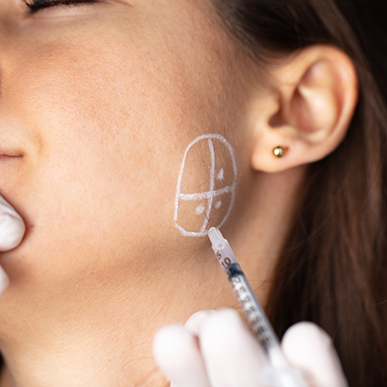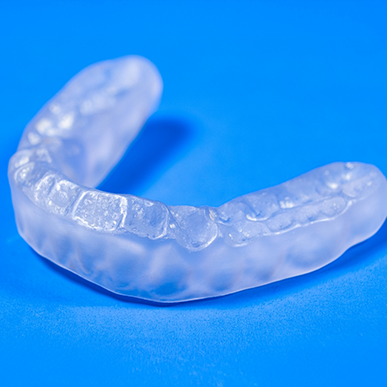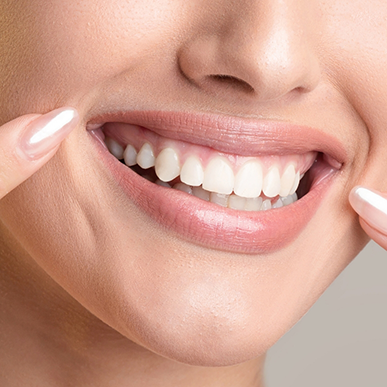TMJ Treatment Fort Worth
Increasing Jaw Movement by Alleviating Discomfort

Being able to move your jaw freely is essential. Eating, speaking, smiling, yawning, and other oral functions you perform each day require that your jaw joints operate correctly. When damaged, inflamed, or overly worked, though, this can create problems that negatively affect your long-term oral and overall health. If you notice your jaw is sore, is clicking or popping, or is painful when opening and closing your mouth, call us to schedule an appointment to learn more about TMJ treatment in Fort Worth.
Why Choose Everlasting Dentistry for TMJ Treatment?
- Custom-Made Occlusal Splints
- Xeomin Botulinum Toxin for Temporary Jaw Pain
- Dental Team Available to Discuss Payment Options
What Is TMJ Disorder?

TMJ stands for the temporomandibular joint, which connects your jawbone to your skull. TMJ disorders are a group of conditions that affect the jaw joint and muscles responsible for jaw movement, causing pain, discomfort, and other symptoms like headaches, jaw stiffness, difficulty chewing, and even earaches.
Signs & Symptoms of TMJ/TMD

Signs and symptoms of temporomandibular joint disorder can vary, but some common ones include:
- Jaw Pain or Tenderness: Pain in or around the jaw joint, especially when chewing, talking, or yawning.
- Headaches: Frequent headaches, especially in the temples, often resembling migraines or tension headaches.
- Jaw Stiffness: Difficulty fully opening or closing the mouth, or a sensation of tightness in the jaw muscles.
- Clicking or Popping Sounds: Audible sounds when opening or closing the mouth, often accompanied by discomfort.
- Earaches: Pain or a feeling of fullness in the ears, without an actual ear infection.
- Pain in the Neck and Shoulders: Tension or discomfort in the neck, upper back, or shoulders that may be related to jaw muscle strain.
- Locking of the Jaw: A sensation of the jaw being "stuck" in an open or closed position, making it hard to move.
- Teeth Grinding or Clenching: Often occurring during sleep, this can worsen TMJ symptoms and lead to irreversible tooth wear or damage.
- Changes in Bite: A feeling that your upper and lower teeth don’t fit together properly.
- Cracked or ChippedTeeth: Due to constant grinding or clenching, you may begin to chip and break your teeth and dental restorations. Stress fractures can also become visible on your teeth.
- Tooth Sensitivity: Increased sensitivity in the teeth, especially to cold things, due to excessive grinding or clenching.
How We Treat TMJ Disorder

At our dental office, we specialize in offering personalized care for TMJ disorders. Our experienced team uses the latest techniques to ensure you receive safe, effective treatment that addresses your unique needs. With a focus on comfort and patient satisfaction, we're here to help you find relief from TMJ pain.
Botulinum Toxin

Botulinum toxin is a diluted solution that is used to temporarily relax the area around your jaw so that teeth grinding or bite misalignment do not continue to cause excessive discomfort. The treatment involves a few quick, precise injections into the muscles around your jaw. The procedure is typically done in a matter of minutes, with little to no downtime.
Learn More About Botulinum Toxin for TMJ Treatment
Occlusal Splints

An occlusal splint offers relief from persistent strain and pressure placed on your jaw joints, especially while you sleep. Its cushioned barrier protects teeth from additional damage while also creating a more comfortable sleep experience, so you don’t wake up with jaw soreness.
Equilibration/Occlusal Adjustment

Equilibration is an ideal solution if you have a misaligned bite that needs altering. When certain teeth or restorations cause additional pressure to be placed on various areas of the mouth, we can adjust them so that your bite is more even, effectively alleviating any additional pressure on your teeth and jaw joints.






